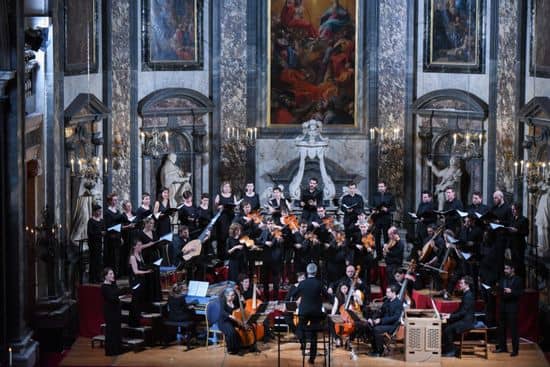Motets de jeunesse
Michel-Richard de Lalande
After Lully’s glittering career at the court of the Sun King, the year 1687 marked a great turning point for music at the French court. Lully had just died, leaving behind him fervent admirers and fascinated followers: the Florentine’s monopoly on French music would paralyze musical life, especially opera, for many years. Although he was under the spell of Lully’s music, Louis XIV did not totally give in to his composer’s monopolistic demands. Thus in 1683, the king himself instituted a competition to recruit new musicians for his chapel: the most brilliant composers of the kingdom participated (including Marc-Antoine Charpentier). The king decided: “I choose Lalande”. Thus, the young Michel-Richard Delalande, 26 years old, son of a tailor trained at the choir school of St Germain l’Auxerrois, took his place in the middle of this musical world of the court, with Lully’s blessing. Over the years, after Lully’s death, he gained even more esteem from Louis XIV, eventually obtaining all the court music positions.
During the first years of his career in Versailles, he built up a repertoire of great motets that would become models for Europe, but also favorite successes of the king and the court: born in the very institutional and richly endowed setting of the royal chapel, these works would also be very successful with the public, since they would be included in the program of the Concert spirituel, a private concert organization in Paris, for many years. Thus born in the royal fold, these works enjoyed a posterity and success generating a significant economic life for decades after the composer’s death in 1726. After his death, his widow obtained a royal privilege from Louis XV to publish the complete motets. The success of the motets also extended beyond the borders of France: they were performed and adored throughout Europe.
PROGRAM
LALANDE
Miserere
Veni Creator
La Grande Pièce Royale
Dies Irae
